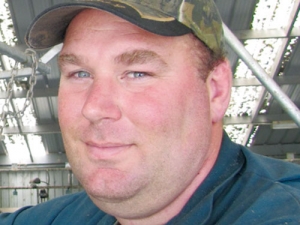The advent of closed circuit television is now making it easier for farmers to protect themselves from 'industrial sabotage', according to an industry leader.
Federated Farmers dairy chairman Andrew Hoggard's comments follow a recent incident in Manawatu where a dairy farm worker was prosecuted for deliberately contaminating 18,000L of milk worth nearly $11,000, stored in a vat.
Hoggard says such vandalism is not unusual and he is unsure whether the problem is getting worse. The incident in Manawatu coincides with claims by the Council of Trade Unions that some farm workers are poorly paid and have poor working conditions.
Hoggard says farmers are particularly vulnerable because they have to leave their sheds open for the tankers. Now he is seeing more farmers using CCTV at their vats and cowsheds.
"A CCTV camera can be bought for about $120. This can have a motion-sensor built in which sends an email to the farmer so he can find out what's going on. There are cheap technology options available for farmers to keep an eye on their farms."
Hoggard says farmers normally carry insurance to cover any loss of milk because of power cuts or other incidents. The latest case, where the farm worker is paying back the farmer $20 a week in reparation, is an insult to the farmer in question.
Many of the problems farmers face are out on their properties, he says.
"Most farmers would have a story about some illegal [growing] activities taking place on their farms. There is always a risk in harvesting maize too early," Hoggard adds. "Farmers face the dilemma of reporting such activities. If they report them, strange things start happening around their farms."
Hoggard has discovered people have been on his farm at night drinking beer and spirits at the end of a road by the river.
"Often you wonder what sort of strange people go and park up in the middle of the night and drink themselves silly. Weird stuff like that happens," he says.



















